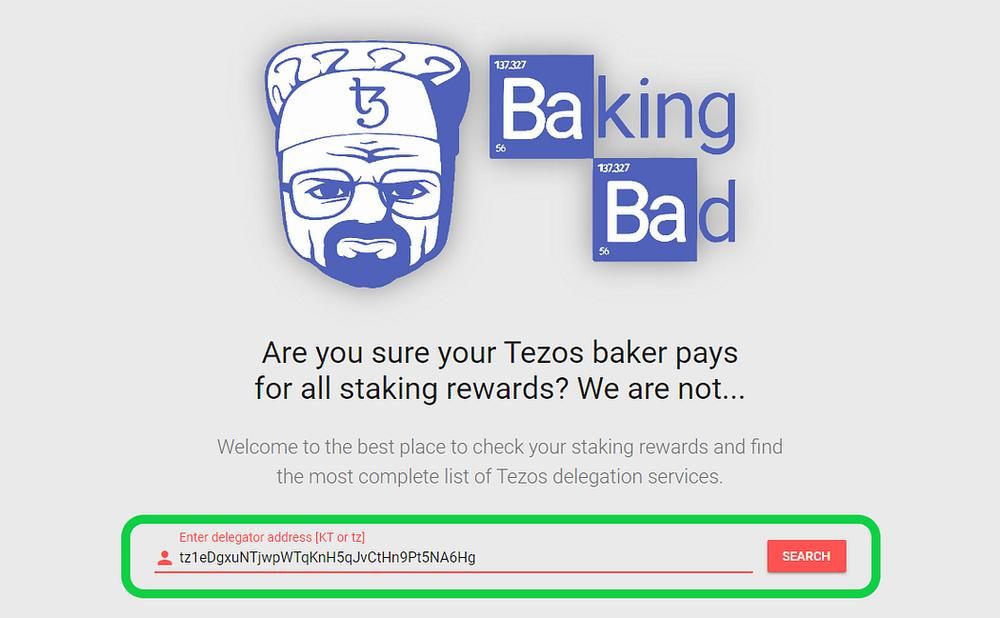Why are you not staking your tez anon?
Why everyone, regardless of the amount or the reason they are holding tez, should be staking their tez.
Originally published at Tezos Commons News
1,350 words, 7 minute read

Many times while I use a Tezos block explorer, I come across certain addresses that are holding tez in them but are not staked (delegated to a baker). Knowing how important and beneficial staking is for everyone and why those addresses aren’t staked, I can only think of a few reasons why those users aren’t staking their funds, and one reason is probably due to lack of knowledge on how staking works which in turn creates doubts and fear, so they simply choose not to bother.
So with this article, I want to try and explain why everyone, regardless of the amount or the reason they are holding tez, should be staking their tez, and how stupidly easy it is.
Whether you are an NFT artist that have made some sales and are now holding some tez, or if you just received some tez as a gift, or generally if you are a new user that just joined the Tezos ecosystem, you should be staking your tez! As you will realize at the end of this article, it is really a no-brainer so let’s get into it!
How can you stake your tez? #
There are two ways to stake your tez, baking and delegating.
Baking: is the process of using your tez to actively participate in the networks security and consensus process (a.k.a. being a validator) and get rewarded by producing or endorsing blocks. This won’t be our focus in this article as it requires people to run the corresponding software and have a staking balance of at least 6,000 tez.
Delegating: (which is what we will be focusing on), is when you delegate your staking rights to a baker of your choice, and in return he pays you your share of the rewards. For this service the baker usually charges a fee which is withheld from the rewards you receive. You can delegate your coins with literally 2-clicks so it’s usually the easiest option for most users.
What are the risks? #

Contrary to other coins, where it is required to lock your tokens for a specific period of time and/or to run a node, delegating tez has none of those downsides.
When you delegate your tez:
- they never leave your wallet so you don’t have to worry about them being hacked or stolen
- they are never locked or frozen so even while they are delegated you can move them and use them at anytime with no penalties and no other actions needed, they’re always liquid
The only “risk” you have when delegating is that the baker might close down and/or stop paying you rewards, something that I don’t really consider a risk because you wouldn’t have those rewards in the first place if you didn’t delegate at all. Also, as we will see later on, this is something you can easily monitor and avoid. So in conclusion, delegating your tez has zero downsides and only benefits.
What are the benefits? #

The most obvious and direct benefit from delegating your tez is the extra tez you are getting as rewards. These rewards are important as they are your share of the inflation so that your tez is not being diluted from new tez being minted for securing the network. At the time of writing the staking rewards are ~5.5% per year. That’s 5.5% extra tez that you are missing if you are not staking (Why would you do that?!). Don’t leave any tez on the table!
Another benefit is that you help with the security (and governance) of the network. Whether you are minting an NFT, or using some Tezos DApp, or even if you are simply holding tez, you want the network that you use to be as secure as possible and delegating to a public baker is the easiest way that you can help with that.
How do you delegate your tez? #
The tez delegation process is one of the easiest (if not THE easiest) staking processes around the crypto world and that’s why it has one of the highest participation percentages in staking as well (currently*~77% of all the supply is staked**).

(Source: tzkt.io)
Almost all wallets that support tez, includinghardware wallets like ledger***, have a similar process that allows you to delegate with 2 or 3 clicks and it goes like this:
- You open your tez wallet
- Find and click the button saying “Stake” or “Delegate”
- Choose a baker either from the list of bakers the wallet gives you or by manually inserting your baker’s address in the corresponding field and confirm the operation. Remember, delegating does not involve sending of any tez.
One-two-three and that’s it! That’s all you need to do from your side to delegate your tez. From this point on you just monitor and wait for the rewards to start coming in!
For a list of Tezos wallets you can go to Tezos.com
How to choose a baker? #

When it comes to choosing a baker there are a few things that you need to pay attention to as part of your due diligence. Personally, when I look for a baker, I want my baker to:
- have enough free space and a lower minimum for the tokens I want to delegate
- have a reasonable fee (5% to 20%)
- have easy and direct channels of communication.
- be reliable, precise, and stable in payments of rewards
- always participate in the Tezos on-chain governance process
Thankfully, all these things can be easily checked on baker comparison sites like tzkt.io and Tezos-nodes.com.
How do rewards work and where can I track them? #

From the moment you confirm the delegation from your wallet, an automated process begins for your tez to start being staked.
In short, this process is:
- ~20 days for your delegation to be confirmed and your staking rights to be transferred to the baker so he can start staking your tez.
- ~3 days for the staking rewards to be sent to your baker.
- ~14 days for the rewards to be unfrozen so the baker can send them to you (some bakers don’t wait for the rewards to be unfrozen and instead send them to you right away using their own funds).
Long story short, you should receive your first rewards after 23 or 37 days depending on the baker you choose and after that you should be receiving rewards every 2-3 days.
An easy way to see how much your rewards should be and when you should expect them is to use the baking-bad.org website to track them.
Simply paste your wallet’s address in the first search bar and click “Search”

On the next page you will see the “Reward” column which shows you how much your rewards should be for each cycle and the “Payout” column that shows you when you should be expecting the future rewards and how much you were paid by the baker for past rewards.

This is a very easy way to monitor your rewards and identify if something is wrong so that you can contact your baker or re-delegate to another baker.
Now that you know how easy and safe staking tez is, there should be no reason for you to leave your tez sitting idle without delegating them. If you would like to know more details about how staking works and the technicalities behind it you can check the following links that are also my sources for the information shared in this article.
I hope you enjoyed this article and feel free to ask any questions you might have as a comment to this article. As always thank you for your attention and make sure to subscribe for more!